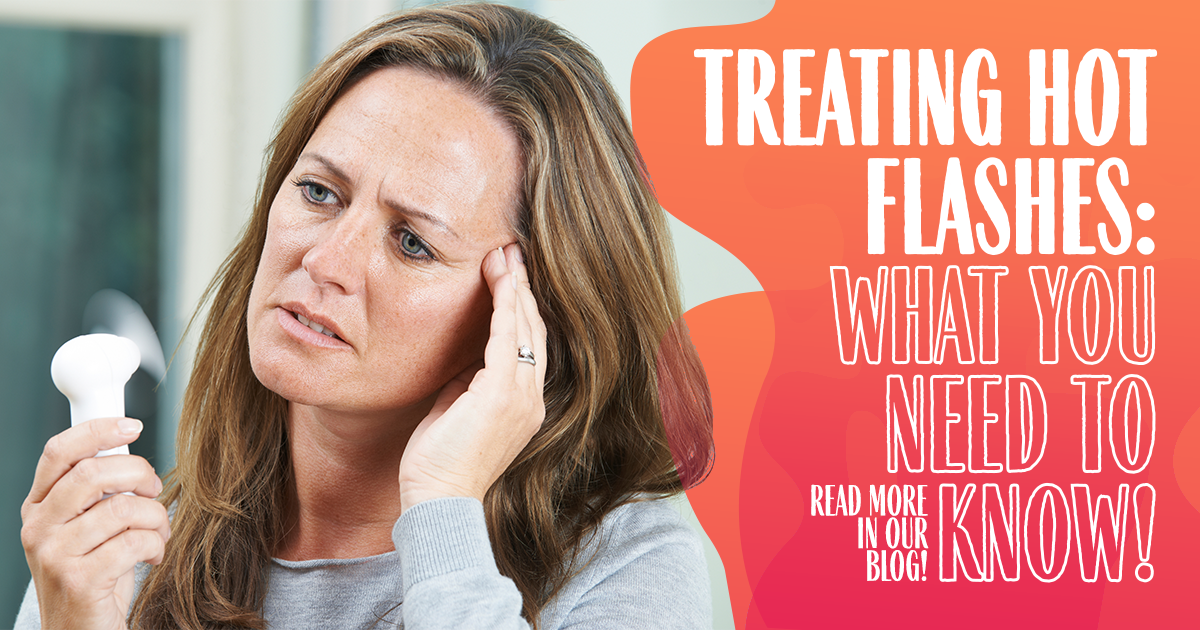75% of perimenopausal women in the United States have reported experiencing hot flashes. They range in severity from being easily tolerated to debilitating. For women that are looking for relief, there are concerns around the safety of hormone therapy, and some are still hesitant to go that route. However, medical experts agree that hormone therapy plays an important role in managing menopause symptoms. Through clinical research, we are learning more about the benefits of hormone therapy and how to better treat hot flashes.
Symptoms of Hot Flashes

The symptoms of hot flashes (also called vasomotor symptoms) are different for each woman. Most report flushing with a sensation of warmth or heat in the upper body and face. Red, blotchy skin, sweating in the upper body, rapid heartbeat, and chills as it dissipates, are all common symptoms. Hot flashes can also occur at night (called night sweats) and wake you from your sleep. Insomnia and the risk of developing other health conditions increase with chronic lack of sleep. Hot flashes can linger on average 3 to 5 years, or in some women, up to 10 years.
Treating Hot Flashes: Hormonal Vs. Non-Hormonal
Available treatments and lifestyle changes cannot eliminate all hot flashes but can provide significant symptom relief. The FDA has two types of approved hot flash-specific treatments. These are hormone therapy and Brisdelle, which is also an antidepressant. Other medications that are approved for treating other conditions have also been shown to help reduce hot flash symptoms.
As with ANY treatment, there are risks and benefits. Family history and certain medical conditions can increase these risks. You and your doctor will review these to ensure the safest and most appropriate treatment course is taken.
Below are some of the commonly used medications for the treatment of hot flashes:
Hormonal
- Estrogen alone (typically prescribed to women who have had a hysterectomy)
- Estrogen with Progestin
Non-Hormonal
- Brisdelle
- Effexor
- Paxil
- Prozac
- Gabapentin
- Clonidine

Seattle Clinical Research Center is currently enrolling participants for a research study looking into a potential new hormonal therapy for hot flashes. To learn more about this study, call (206) 522-3330 or click here.
References:


